Search the Special Collections and Archives Portal
Search Results

Film strip of individuals or Hoover Dam construction, image 007: photographic print
Date
Archival Collection
Description
Image
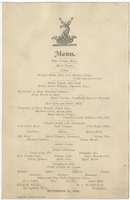
Arcade Hotel menu, November 16, 1884
Date
Archival Collection
Description
Text
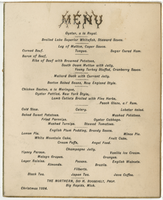
Christmas menu, 1884, The Northern
Date
Archival Collection
Description
Text
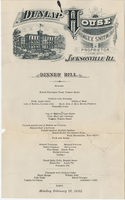
Dunlap House menu, Monday, February 12, 1883
Date
Archival Collection
Description
Text
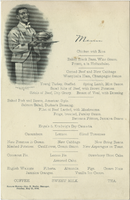
Sloane House menu, Sunday, May 25, 1884
Date
Archival Collection
Description
Text
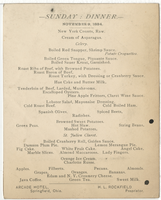
Arcade Hotel Sunday dinner menu, November 9, 1884
Date
Archival Collection
Description
Text
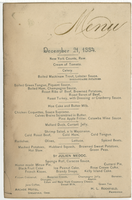
Arcade Hotel menu, December 21, 1884
Date
Archival Collection
Description
Text
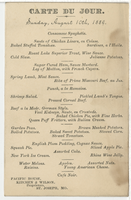
Pacific House menu, Sunday, August 10, 1884
Date
Archival Collection
Description
Text
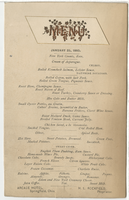
Arcade Hotel menu, January 25, 1885
Date
Archival Collection
Description
Text
Stephen Nasser Papers
Identifier
Abstract
The Stephen Nasser Papers (1992-2018) mainly contain letters written from school children to Nasser who travels to schools, churches, and organizations around Las Vegas, Nevada to share his story of surviving the Holocaust during World War II. Materials in this collection document his captivity in various prison camps and includes photographs, awards, and newspaper clippings. Also included are speeches given by Nasser and book reviews and a teacher's guide of his book My Brother's Voice written by students of Dixie College, St. George, Utah. This collection includes a copy of
Archival Collection
